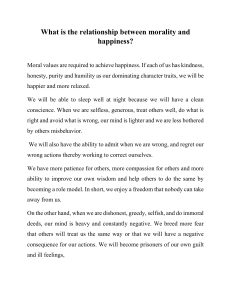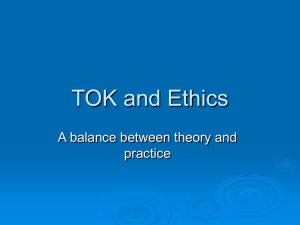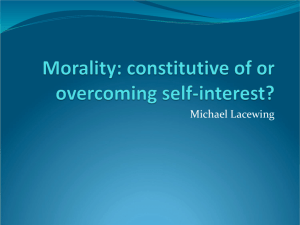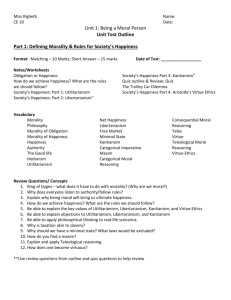Kant's attack on being moral in order to be happy
advertisement
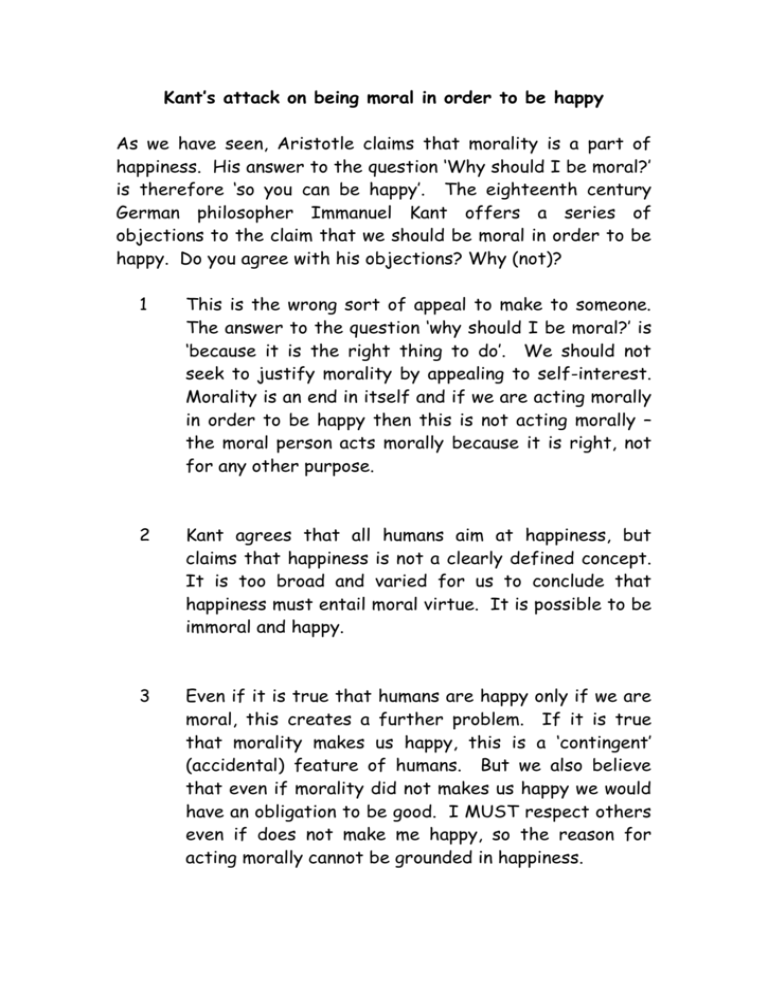
Kant’s attack on being moral in order to be happy As we have seen, Aristotle claims that morality is a part of happiness. His answer to the question ‘Why should I be moral?’ is therefore ‘so you can be happy’. The eighteenth century German philosopher Immanuel Kant offers a series of objections to the claim that we should be moral in order to be happy. Do you agree with his objections? Why (not)? 1 This is the wrong sort of appeal to make to someone. The answer to the question ‘why should I be moral?’ is ‘because it is the right thing to do’. We should not seek to justify morality by appealing to self-interest. Morality is an end in itself and if we are acting morally in order to be happy then this is not acting morally – the moral person acts morally because it is right, not for any other purpose. 2 Kant agrees that all humans aim at happiness, but claims that happiness is not a clearly defined concept. It is too broad and varied for us to conclude that happiness must entail moral virtue. It is possible to be immoral and happy. 3 Even if it is true that humans are happy only if we are moral, this creates a further problem. If it is true that morality makes us happy, this is a ‘contingent’ (accidental) feature of humans. But we also believe that even if morality did not makes us happy we would have an obligation to be good. I MUST respect others even if does not make me happy, so the reason for acting morally cannot be grounded in happiness.



